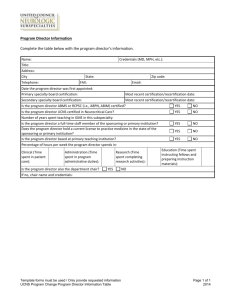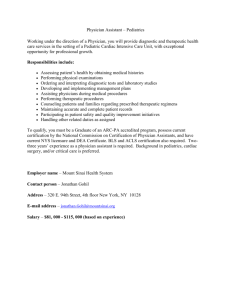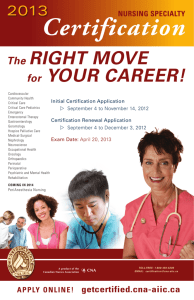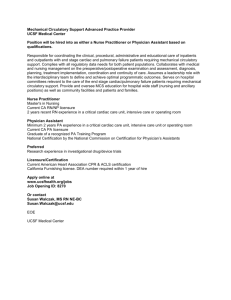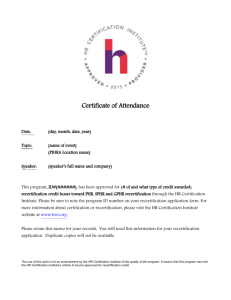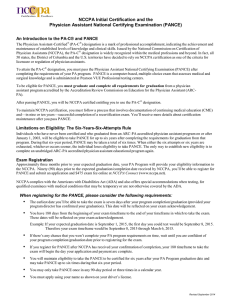The Difference between a Physician Assistant and a Nurse Practitioner
advertisement
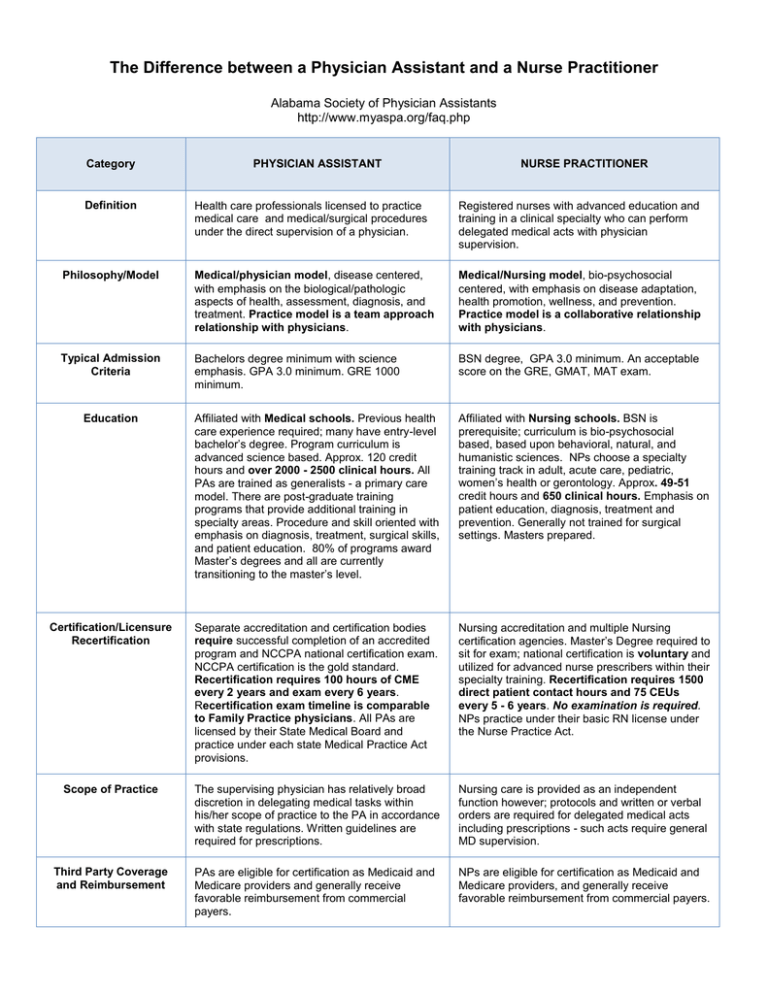
The Difference between a Physician Assistant and a Nurse Practitioner Alabama Society of Physician Assistants http://www.myaspa.org/faq.php Category Definition PHYSICIAN ASSISTANT NURSE PRACTITIONER Health care professionals licensed to practice medical care and medical/surgical procedures under the direct supervision of a physician. Registered nurses with advanced education and training in a clinical specialty who can perform delegated medical acts with physician supervision. Philosophy/Model Medical/physician model, disease centered, with emphasis on the biological/pathologic aspects of health, assessment, diagnosis, and treatment. Practice model is a team approach relationship with physicians. Medical/Nursing model, bio-psychosocial centered, with emphasis on disease adaptation, health promotion, wellness, and prevention. Practice model is a collaborative relationship with physicians. Typical Admission Criteria Bachelors degree minimum with science emphasis. GPA 3.0 minimum. GRE 1000 minimum. BSN degree, GPA 3.0 minimum. An acceptable score on the GRE, GMAT, MAT exam. Education Affiliated with Medical schools. Previous health care experience required; many have entry-level bachelor’s degree. Program curriculum is advanced science based. Approx. 120 credit hours and over 2000 - 2500 clinical hours. All PAs are trained as generalists - a primary care model. There are post-graduate training programs that provide additional training in specialty areas. Procedure and skill oriented with emphasis on diagnosis, treatment, surgical skills, and patient education. 80% of programs award Master’s degrees and all are currently transitioning to the master’s level. Affiliated with Nursing schools. BSN is prerequisite; curriculum is bio-psychosocial based, based upon behavioral, natural, and humanistic sciences. NPs choose a specialty training track in adult, acute care, pediatric, women’s health or gerontology. Approx. 49-51 credit hours and 650 clinical hours. Emphasis on patient education, diagnosis, treatment and prevention. Generally not trained for surgical settings. Masters prepared. Certification/Licensure Recertification Separate accreditation and certification bodies require successful completion of an accredited program and NCCPA national certification exam. NCCPA certification is the gold standard. Recertification requires 100 hours of CME every 2 years and exam every 6 years. Recertification exam timeline is comparable to Family Practice physicians. All PAs are licensed by their State Medical Board and practice under each state Medical Practice Act provisions. Nursing accreditation and multiple Nursing certification agencies. Master’s Degree required to sit for exam; national certification is voluntary and utilized for advanced nurse prescribers within their specialty training. Recertification requires 1500 direct patient contact hours and 75 CEUs every 5 - 6 years. No examination is required. NPs practice under their basic RN license under the Nurse Practice Act. Scope of Practice The supervising physician has relatively broad discretion in delegating medical tasks within his/her scope of practice to the PA in accordance with state regulations. Written guidelines are required for prescriptions. Nursing care is provided as an independent function however; protocols and written or verbal orders are required for delegated medical acts including prescriptions - such acts require general MD supervision. Third Party Coverage and Reimbursement PAs are eligible for certification as Medicaid and Medicare providers and generally receive favorable reimbursement from commercial payers. NPs are eligible for certification as Medicaid and Medicare providers, and generally receive favorable reimbursement from commercial payers.
